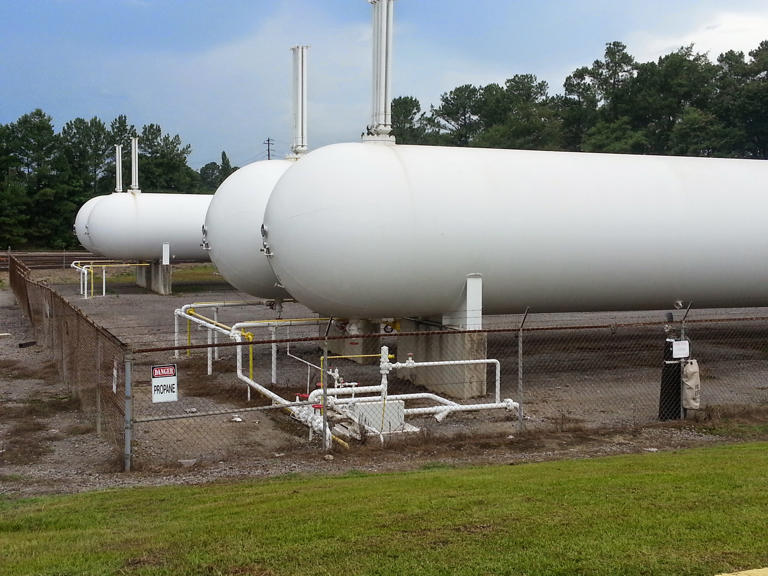The sale of the Northeast Gasoline Supply Reserve is among the provisions intended to raise funds in one of six bills setting out appropriations for some federal departments this year after Congress narrowly avoided another shutdown last week.
Under a bill providing funding for the U.S. Department of Energy (DOE) for the fiscal year, a million barrels of the government’s strategic reserve of petroleum would be sold off—the same amount as in the NGSR, which is located in New York Harbor, Boston, Massachusetts and South Portland, Maine.
“Upon the complete of such sale, the Secretary [of Energy] shall carry out the closure of the Northeast Gasoline Supply Reserve,” the bill states, and “may not establish any new regional petroleum product reserve unless funding of the proposed regional petroleum product reserve is explicitly requested in advance in an annual budget.”
The proceeds of the sale are to be deposited into the Treasury’s general fund, and the proposed appropriations act provides stipulations for the sale of the oil and the use of the money generated by it.
Congress is expected to pass the package, which is the result of cross-party negotiations, with votes set to take place this week. Negotiations on a further six spending bills continue.
Newsweek reached out to the DOE via email for comment on Monday.
House Speaker Mike Johnson threw his weight behind the bills, saying they “secured key conservative policy victories.” However, he could still face a rebellion from conservative GOP representatives.
The speaker has struggled to get appropriation bills passed previously, with the House Republican caucus beset with internal divisions. Some conservative members have been critical of the bills and voted against the short-term extension that avoided a government shutdown.
The Obama administration established the NGSR following the destruction caused by Superstorm Sandy in 2012, which left many in the northeast without gasoline.
While the reserve is intended to provide a short-term supply to the region in the event of a similar natural disaster, in an October 2023 report, the DOE noted that it had never been used, would provide “minimal relief to a shortage condition,” and cost around $16 million a year to maintain.
A May 2022 report by the Government Accountability Office found that the DOE’s reserves in the northeast were “not well suited to address the risks of supply disruptions” in the region, with the NGSR containing less than two days of consumption.
By comparison, the United States’ total strategic reserves number over 360 million barrels.
Still, some have questioned shutting the reserve down. Zero Hedge, a far-right libertarian financial blog that has promoted conspiracy theories and climate denial, wrote on Sunday: “Is the government trying to cause another disaster? This supply is so small but crucial for its intended purpose that we’re in ‘just why?’ territory.”
Others argued that it would leave the region vulnerable to a supply disruption from a cyberattack on a pipeline, as happened in the southeast in 2021, and that the DOE had failed to produce an alternative for future disasters.
Among the concessions achieved by Republicans was a stipulation that none of the reserve’s oil be sold to any entity deemed to be under the ownership or influence of the Chinese Communist Party.
Overall, the package of appropriations would keep non-defense spending relatively flat compared to last year—and $70 billion less than what President Joe Biden had initially sought, according to analysis by the Associated Press.
